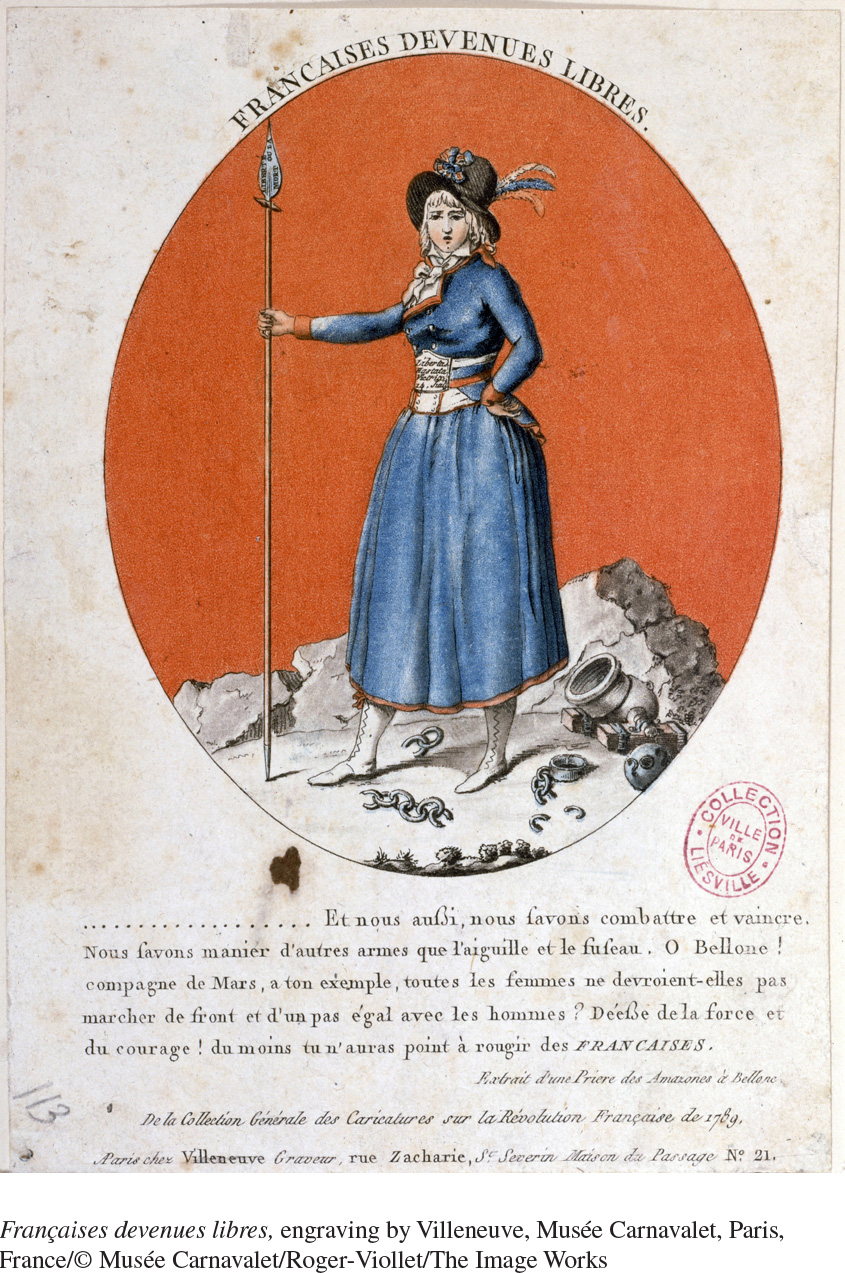Source 16.6: The Rights of Women: “Frenchwomen Freed”
Did the “rights of man” include women? During the French Revolution, the question of women’s rights was sharply debated. Just two years after the famous French Declaration, the French playwright and journalist Olympe de Gouges sought to apply those rights to women when she crafted her Declaration of the Rights of Woman and the Female Citizen. “Woman, wake up,” she wrote, “the tocsin [warning bell] of reason is being heard throughout the whole universe; discover your rights.”1 As the revolution unfolded, many women became actively involved, taking part in street demonstrations, establishing dozens of women’s clubs, and petitioning legislative bodies on behalf of women. Most men, however, even ardent revolutionaries, agreed with the French lawyer Jean-
Questions to consider as you examine the source:
- How would you read the overall message of this engraving?
- How does her physical stance and facial expression contribute to this message?
- What might attract such women to the cause of the revolution?
French Woman during the Revolution

Notes
- Olympe de Gouges, “The Rights of Women,” in The French Revolution and Human Rights: A Brief Documentary History, edited and translated by Lynn Hunt (Boston: Bedford/St. Martin’s, 1996), 124–
29. - Jean-
Denis Lanjuinais, “Discussion of Citizenship under the Proposed New Constitution,” in Hunt, The French Revolution and Human Rights, 133.